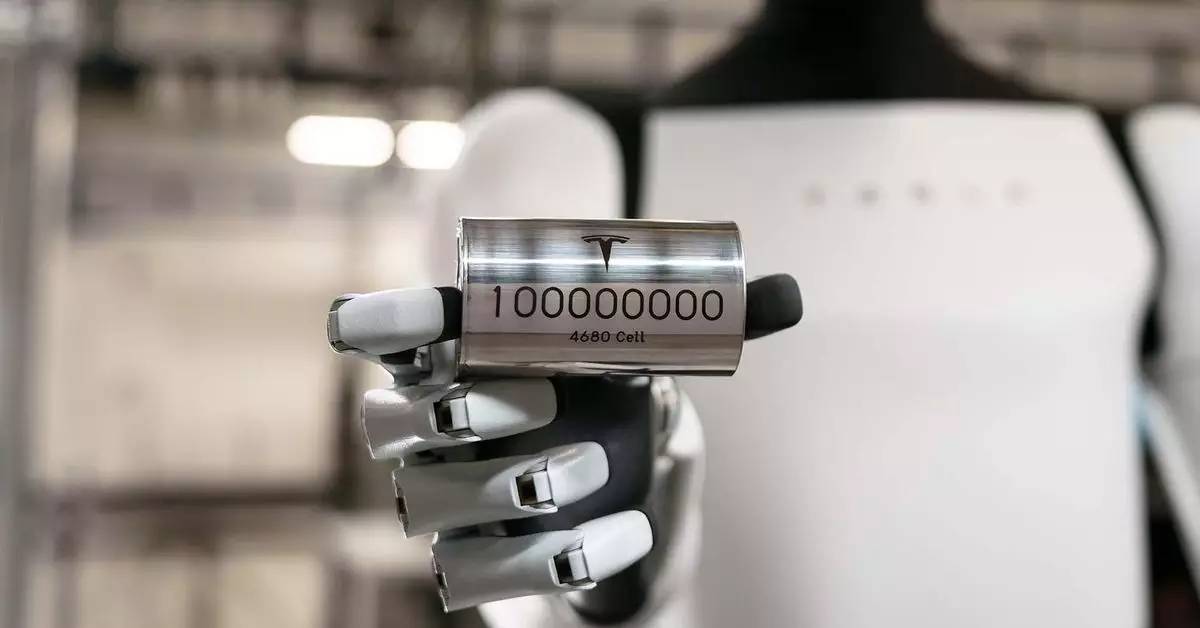In the rapidly evolving landscape of electric vehicles (EVs), battery technology stands at the forefront of innovation, fueling discussions among industry leaders. A recent confrontation between Robin Zeng, the founder and chairman of Contemporary Amperex Technology Co. Ltd. (CATL), and Elon Musk, CEO of Tesla, has shed light on the competitive dynamics in this critical sector.
During a visit to China, Elon Musk faced pointed criticism from Zeng regarding Tesla’s ambitious strategy surrounding the 4680 cylindrical cell battery technology. Zeng’s assertion that Musk’s plans are “going to fail and never be successful” highlights a significant rift within the EV battery community. The debate reportedly escalated during their discussions, emphasizing not only the competitive nature of the market but also the divergent philosophies of two influential figures in the industry.
Zeng, with extensive experience in battery manufacturing, claims he demonstrated crucial insights to Musk, an assertion suggesting an underlying tension between the two. This leads one to question the foundational knowledge of the billionaire CEO in an area where his company is staking its future. Musk’s 4680 cells, intended to revolutionize energy density and efficiency, seem to face scrutiny not just from competitors, but also from insiders like Zeng who possess deep technical expertise.
Tesla’s 4680 batteries are designed to enhance the energy capacity of vehicles starting with the Cybertruck, promising five times the capacity of previous models. Nevertheless, the recent report by The Information indicating impending deadlines for cost and production challenges raises eyebrows. As Zeng noted, the intricacies of battery manufacturing are profoundly complex, often underestimated by those outside the industry’s core.
CATL, on the other hand, eclipses Tesla in production volume and technological refinement, providing batteries for a vast array of vehicles, including Ford’s electric lineup. Unlike Tesla’s cylindrical cells, CATL’s lithium iron phosphate (LFP) batteries represent a different approach, prioritizing safety and sustainability while potentially sacrificing some range. This comparison underscores the ongoing debate about battery chemistry and its implications for vehicle performance and market acceptance.
A striking element of Zeng’s critique centers around Musk’s propensity for ambitious timelines. The inherent risks of overpromising deadlines in tech development can lead to disillusionment among consumers and investors alike. Zeng’s observations regarding Musk’s tendency to underestimate project durations resonate with many stakeholders in the EV sector, intertwining expectations with technological capabilities.
Ultimately, Zeng’s commentary reveals a larger narrative within the electric vehicle industry—one where aggressive goals and the race for innovation may sometimes overshadow caution and realistic planning. The outcome of this technological conflict may redefine not only the fate of Tesla’s 4680 cells but also influence broader trends in the EV market.
As industry titans clash over the future of battery technology, the path forward for EV innovation becomes increasingly intricate. The interplay between established expertise and visionary ambition will shape not only the next generation of electric vehicles but also the landscape of sustainable transportation as a whole.


Leave a Reply